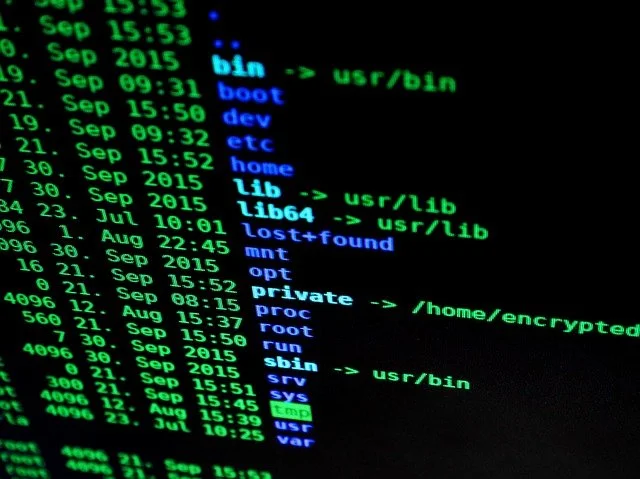According to the Pegasus Project NGO and media collective, Kigali allegedly used the Israeli Pegasus software to spy on politicians in some African countries. These accusations risk rekindling the already persistent tensions between Kigali and these states.
It is a scandal with the world’s media on tenterhooks, and sub-Saharan Africa is not left out. The Pegasus affair, named after the powerful Israeli spying software used by certain states to spy on journalists, human rights activists, politicians, and even heads of state, continues to reveal its little secrets.
According to the consortium of international media – gathered in a network coordinated by the NGO Forbidden Stories and assisted by the NGO Amnesty International – which revealed the affair, Rwanda would have tapped the conversations of senior officials and politicians from Uganda, Burundi, Congo, and South Africa. These revelations have been strongly contested by the Rwandan authorities and risk damaging the already problematic relations between Kigali and some of the above-mentioned countries.
Repeat offender?
This is not the first time that Rwanda, a small landlocked East African country of 26,338 km2, has been pinned down in a case of espionage.
Indeed, since Paul Kagame came to power in July 1994, the country of a thousand hills has invested a lot in espionage to be considered one of the most advanced African countries in this field. The current President of Rwanda is himself a former member of Ugandan military intelligence, where he was deputy director of services. Suppose the scandal that has erupted in the wake of the Pegasus affair is surprising to many. In that case, it must surely elicit shrugs and chuckles in Rwanda itself and in the Great Lakes region, noted by Sputnik’s analyst, Patrick Mbeko, an expert on Central Africa.
Suppose it is no secret that the Rwandan power is mobilizing significant resources to spy on its population. In that case, it is mobilizing even more to scrutinize everything that happens outside its borders.
Particularly targeted are human rights activists, Rwandan and foreign journalists, opponents, and especially dissidents. The use of increasingly sophisticated technologies allows it to monitor and track down all those who represent any threat in the regime’s eyes.
Two years ago, the Financial Times revealed the spying of several members of the opposition in exile using Pegasus. Their phones and especially their WhatsApp accounts had been tracked by the Rwandan services using this powerful software.
Developed and sold by the Israeli group NSO based in Herzliya and partly owned by a British private equity group called Novalpina Capital, Pegasus was designed to get into cell phones and start transmitting the owner’s location, encrypted conversations, not to mention the entire contents of the device to servers around the world. Officially, the software is intended to fight serious crime and terrorism. But the reality is the opposite of this claim.
In fact, Pegasus is used by some states primarily for surveillance purposes. In 2019, WhatsApp accused NSO Group of sending malware to 1,400 cell phones for surveillance purposes. Among those mobiles were devices belonging to Rwandan opponents and dissidents.
When the Financial Times broke the story, President Kagame responded to the allegations by denying the facts, arguing that he did not have enough money to afford such software.
Target victims
But here’s the thing! His regime has just been caught red-handed, according to a consortium of international media and NGOs that investigated Pegasus and had access to nearly 50,000 telephone numbers potentially targeted by the powerful software.
Among the people targeted by Rwandan spies is Carine Kanimba, the daughter of opposition leader Paul Rusesabagina, who is in prison and on trial today in Kigali after being kidnapped in Dubai a few months ago, and political and military officials from Uganda, Burundi, and the Congo.
They include Alain-Guillaume Bunyoni, Prime Minister of Burundi, Joseph Ocwet, and General David Muhoozi, respectively head of external intelligence and Minister of the Interior of Uganda, and Ruhakana Rugunda, who was until recently the Prime Minister of Uganda.
According to the Project Pegasus collective, South African President Cyril Ramaphosa is also among the high-profile African figures targeted by the Rwandan services via Pegasus. As soon as the news was announced, the South African government was quick to react by instructing the country’s intelligence agencies to shed light on President Ramaphosa’s cell phone spying.
Project Pegasus has finally established that Rwandan intelligence services have spied on nearly 3,500 phones using the software since 2016.
Risk of further tension
Of course, Rwanda has strongly rejected all allegations against it. “These false accusations are part of an ongoing campaign to cause tensions between Rwanda and other countries and to sow misinformation about Rwanda at the national and international level,” the Rwandan government said in a statement to the team of journalists who worked on Project Pegasus.
The Rwandan authorities can only deny the facts, especially since the revelations come at an awful time in its diplomatic history, noted by Sputnik’s analyst. For several years now, relations with its Burundian and Ugandan neighbors have not been good. Distrust is mutual despite the posturing on both sides. With South Africa, relations deteriorated after the December 31, 2013 assassination in a Johannesburg hotel of Colonel Patrick Karegeya, former head of Rwandan external intelligence who had gone over to the opposition.
The Pegasus affair could slow down the normalization process with the countries mentioned above, which Rwanda is keen on. It could also rekindle tensions between Kigali and the Gitega-Kampala-Pretoria trio.
It is, in effect, an additional layer of suspicion added to the already problematic relations between these capitals and Kigali. Some states in the Great Lakes region and South Africa will eventually become convinced that Rwanda is not a reliable partner, explained by Sputnik’s analyst on Central Africa.
According to the International Media Consortium, the spying on Ugandan officials coincided with Paul Kagame’s visit to Uganda in February 2020 as part of the normalization of relations between the two countries.
